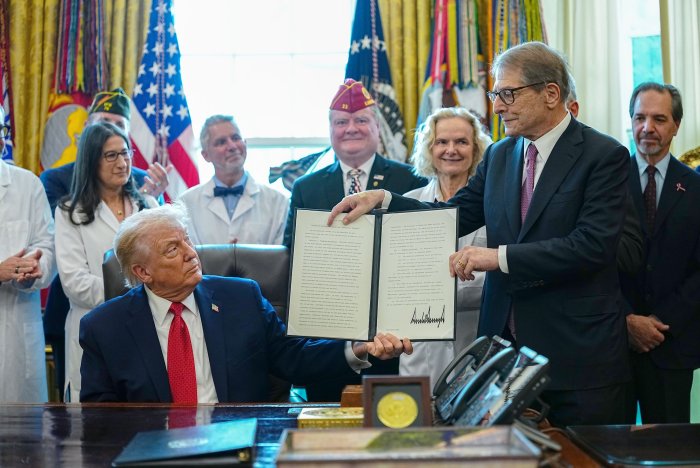Times Square adds July 3 ball drop for nation’s 250th birthday
Dec. 26 (UPI) — A red, white and blue glass ball will drop on July 3 in New York City’s Times Square to celebrate the nation’s 250th birthday in a first for the city.
The event will mark the first time that Times Square has hosted a second ball drop after the ad-hoc America250 committee announced the decision on Friday, The Hill reported.
“One Times Square has long been a place where the world comes together to celebrate pivotal moments — from the end of World War II to the moon landing,” said Michael Phillips, who leads the company that owns One Times Square.
“We’re proud to serve as the starting point of this historic year, showcasing the nation’s celebration on a global stage.”
The committee said it will connect the traditional New Year’s ball drop with the July 3 event.
The Times Square ball to be used in the New Year’s celebration will drop at midnight on New Year’s Day in its traditional manner.
It then will be illuminated with red, white and blue lights and rise again to above a “2026” sign, where it will drop a ton of red, white and blue confetti at 12:04 a.m. EST, according to the New York Post.
A “dynamic pyro finale” will close out the New Year’s Day event as “America the Beautiful” plays.
The same ball will return to Times Square on July 3 to honor the 250th anniversary of the United States and the 1776 signing of the Declaration of Independence, which gave birth to the country.
“To ring in the 4th of July, starting with the same type of festivities that you would normally see on New Year’s Eve — what better way to represent this global impact that we as a country have and the responsibility that comes with that?” America250 chairwoman Rosie Rios told The Post.
“It’s going to be huge,” she added, “and it’s going to be beyond anyone’s expectations.”
The America250 committee also is sponsoring a contest for youth in grades 3 through 12 to earn an opportunity to visit “some of the nation’s most iconic historic and cultural landmarks” while participating in “America’s Field Trip.”
Students will share their perspectives on what the United States means to them in essays, and 250 will be selected to participate in the field trip or opt for a cash prize.

